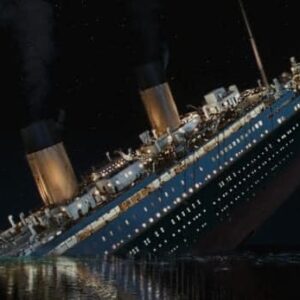
“Titanic” (1997)
“Titanic” (1997)
“Titanic” (1997) is a historic romance and disaster film directed, written, and co-produced by James Cameron. Starring Leonardo DiCaprio and Kate Winslet, it became a monumental cinematic achievement, blending a fictional love story with the tragic sinking of the RMS Titanic in 1912. The film is renowned for its groundbreaking special effects, emotional depth, and global box-office success.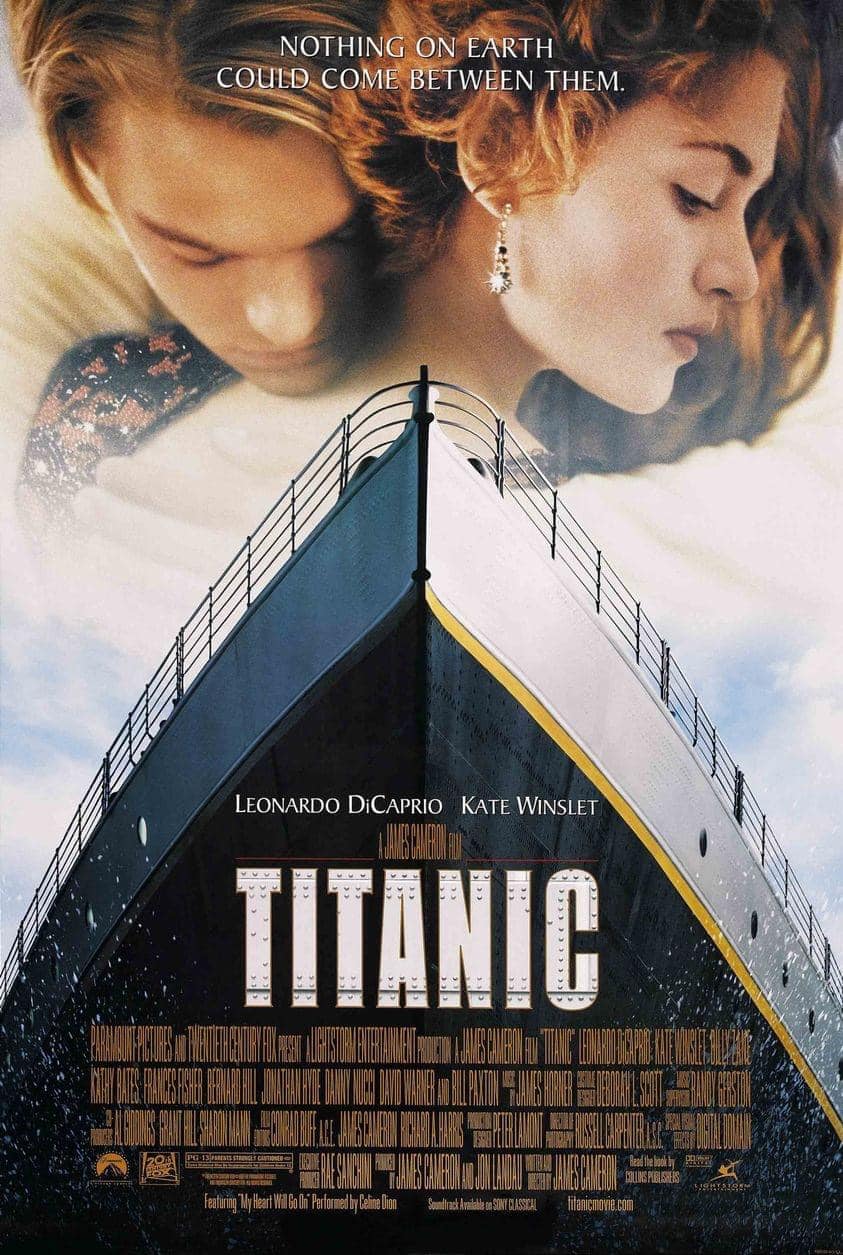
The story of “Titanic” is framed within the present day, where a treasure hunter named Brock Lovett (Bill Paxton) leads an expedition to recover a rare diamond, “The Heart of the Ocean,” from the wreckage of the Titanic. During the search, they discover a sketch of a young woman wearing the diamond, leading them to Rose Dawson Calvert (Gloria Stuart), a survivor of the Titanic disaster.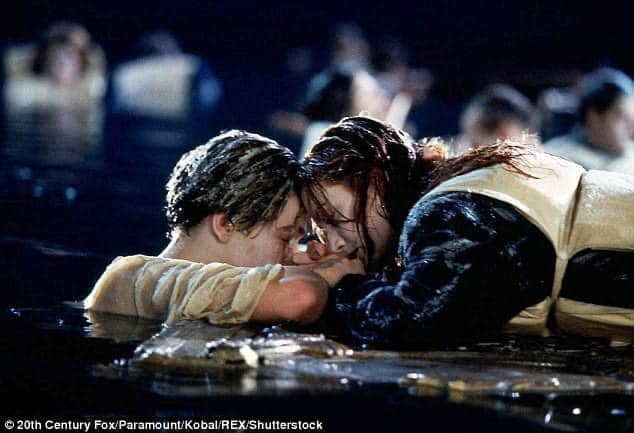
The bulk of the film is a flashback to 1912, where Rose DeWitt Bukater (Kate Winslet), a young aristocratic woman, boards the Titanic with her wealthy fiancé Cal Hockley (Billy Zane) and her domineering mother Ruth DeWitt Bukater (Frances Fisher). Rose, feeling trapped by her engagement and societal expectations, contemplates suicide but is saved by Jack Dawson (Leonardo DiCaprio), a poor artist who won his ticket aboard the ship in a poker game.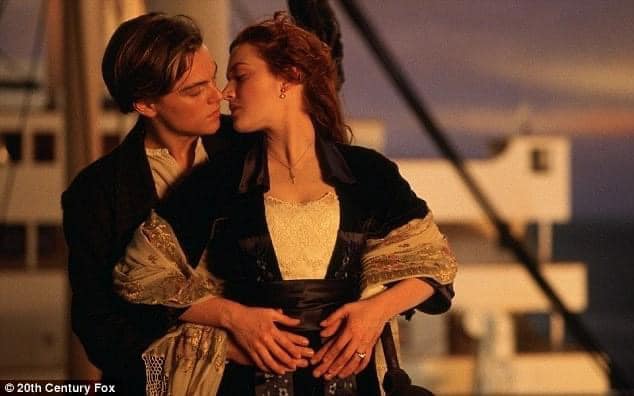
Despite their vastly different social statuses, Jack and Rose form a deep bond and eventually fall in love. Their romance is set against the backdrop of the Titanic’s ill-fated maiden voyage, and as the ship strikes an iceberg, the narrative shifts into a thrilling survival story. Jack and Rose must navigate the chaos and devastation as the ship sinks, leading to heart-wrenching decisions and sacrifices.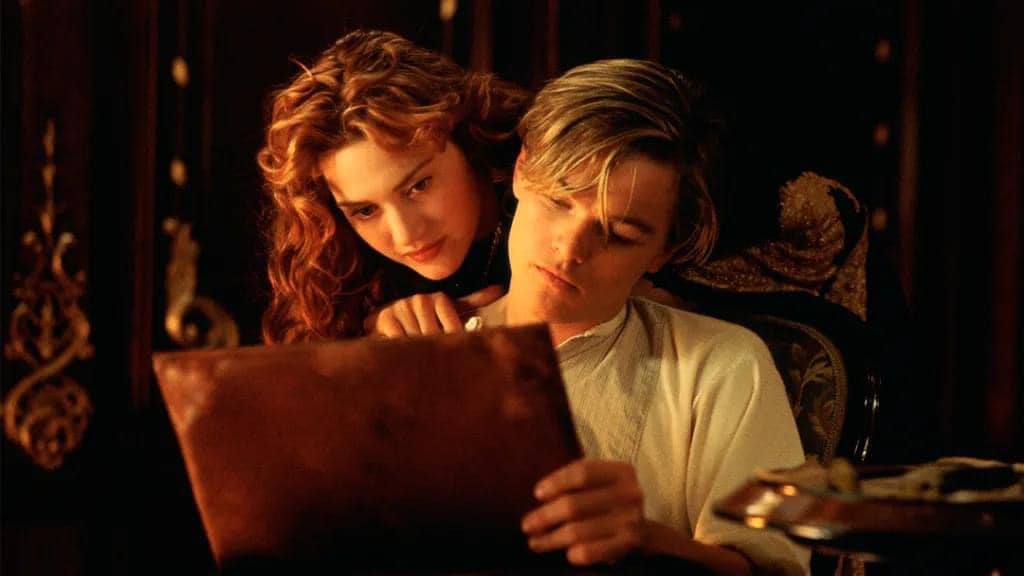
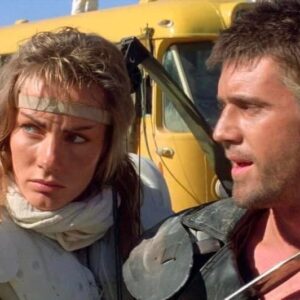
Mad Max (1979)
Mad Max (1979)
Mad Max (1979) is a groundbreaking post-apocalyptic action film that launched a franchise and redefined the genre. Directed by George Miller, the film is set in a dystopian future where society is on the brink of collapse due to fuel shortages and rampant violence. 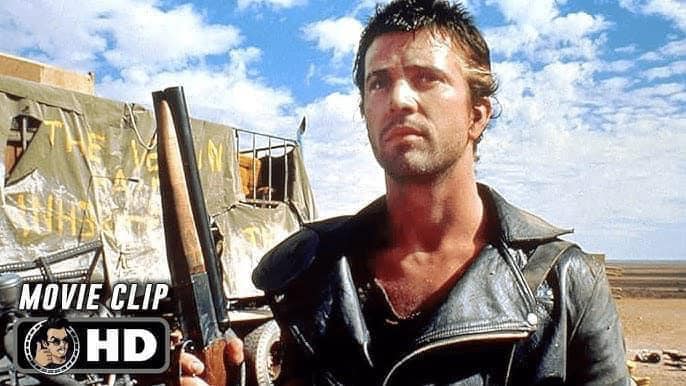 It follows Max Rockatansky, portrayed by Mel Gibson, a former police officer who seeks vengeance against a ruthless gang after they kill his family. The narrative combines intense action with themes of lawlessness, revenge, and the struggle for survival, creating a gripping and visceral experience for viewers.
It follows Max Rockatansky, portrayed by Mel Gibson, a former police officer who seeks vengeance against a ruthless gang after they kill his family. The narrative combines intense action with themes of lawlessness, revenge, and the struggle for survival, creating a gripping and visceral experience for viewers.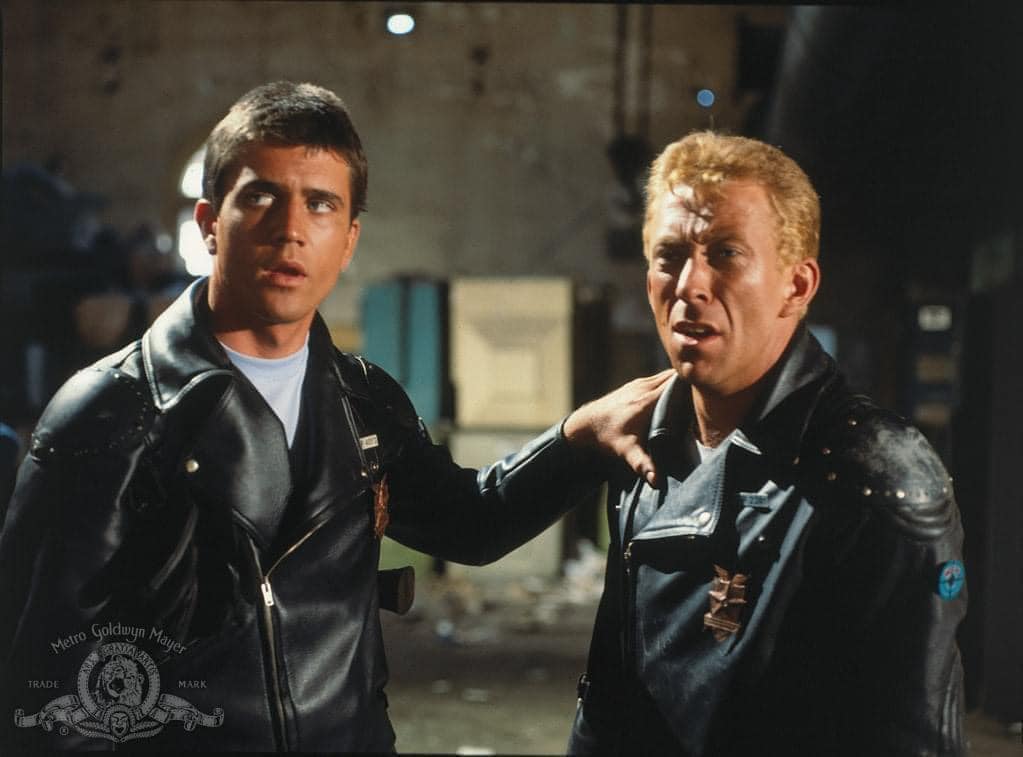
Visually, Mad Max is notable for its innovative use of practical effects and high-octane vehicular stunts, which set a new standard for action films. Miller’s direction expertly balances thrilling chase sequences with moments of tension, immersing audiences in a chaotic world. 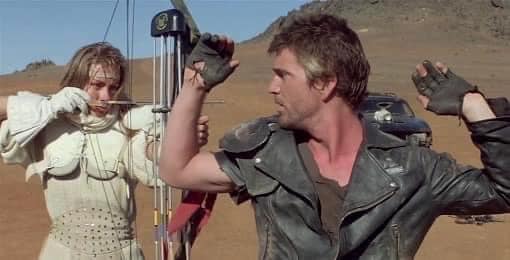 Gibson delivers a compelling performance, embodying the gritty determination of a man pushed to his limits. The film’s distinctive aesthetic, characterized by its bleak landscapes and iconic vehicles, contributes to its enduring appeal. While Mad Max received mixed reviews upon its initial release, it has since gained a cult following and is celebrated for its influence on both the action genre and popular culture.
Gibson delivers a compelling performance, embodying the gritty determination of a man pushed to his limits. The film’s distinctive aesthetic, characterized by its bleak landscapes and iconic vehicles, contributes to its enduring appeal. While Mad Max received mixed reviews upon its initial release, it has since gained a cult following and is celebrated for its influence on both the action genre and popular culture. 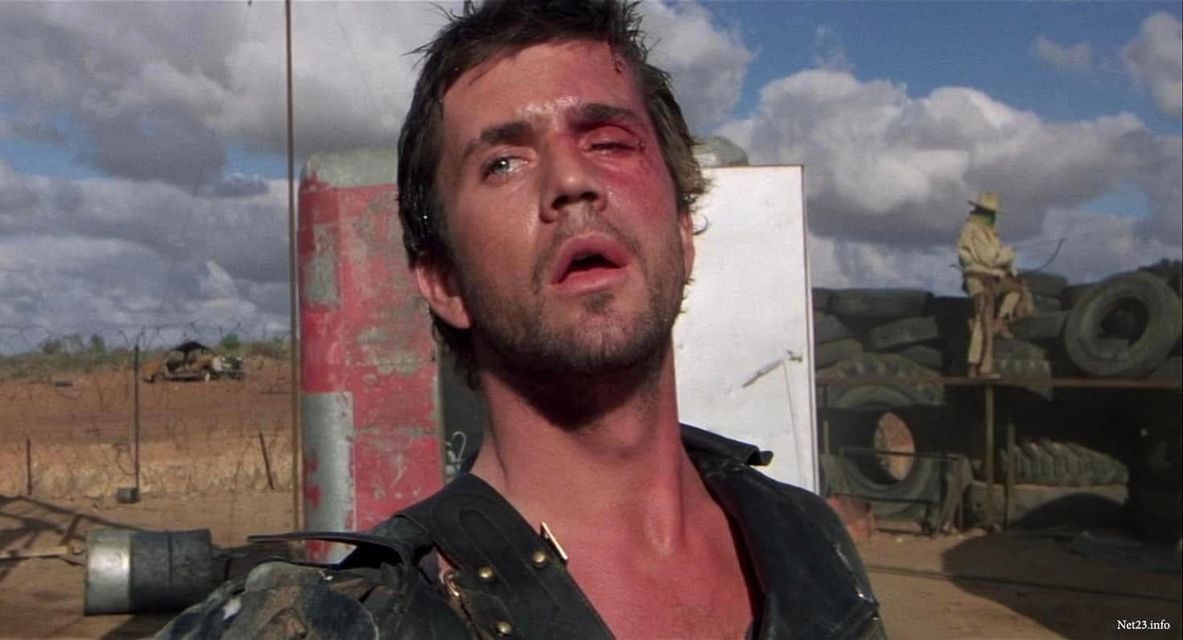 Ultimately, Mad Max remains a significant cinematic achievement, paving the way for future films that explore the themes of survival and moral ambiguity in a lawless world.
Ultimately, Mad Max remains a significant cinematic achievement, paving the way for future films that explore the themes of survival and moral ambiguity in a lawless world.
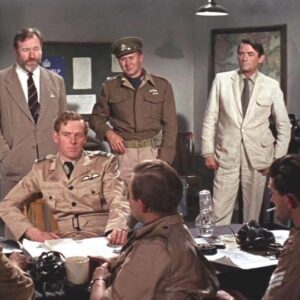
The Guns of Navarone (1961)
The Guns of Navarone (1961)
The Guns of Navarone (1961) is a classic war film directed by J. Lee Thompson and based on the novel of the same name by Alistair MacLean. The film is set during World War II and follows a group of Allied soldiers on a violent mission to destroy a German gunboat on the fictional Greek island of Navarone.
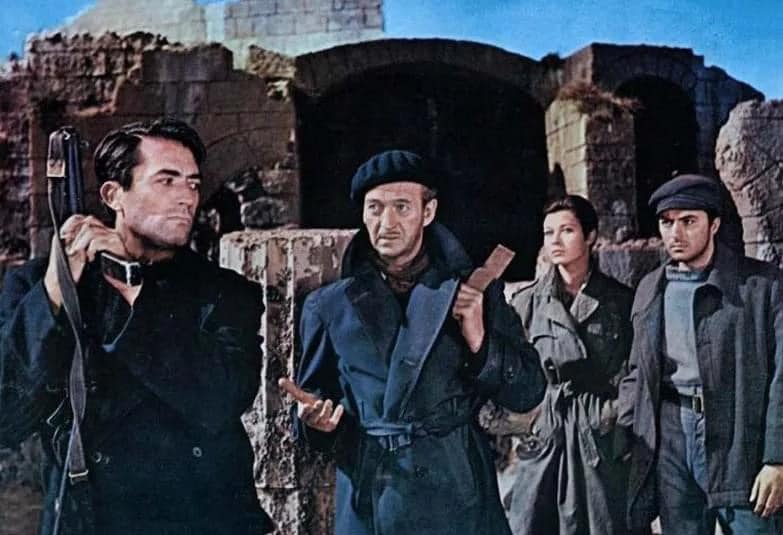
These guns were Allied naval codes and had to be removed to allow the evacuation of British troops trapped on a nearby island.
The film stars Gregory Peck as Captain Keith Mallory, an experienced mountaineer and mission leader. He is joined by David Niven as Corporal John Anthony Miller, an explosives expert, and Anthony Quinn as Colonel Andrea Stavros, a Greek anti-war fighter.
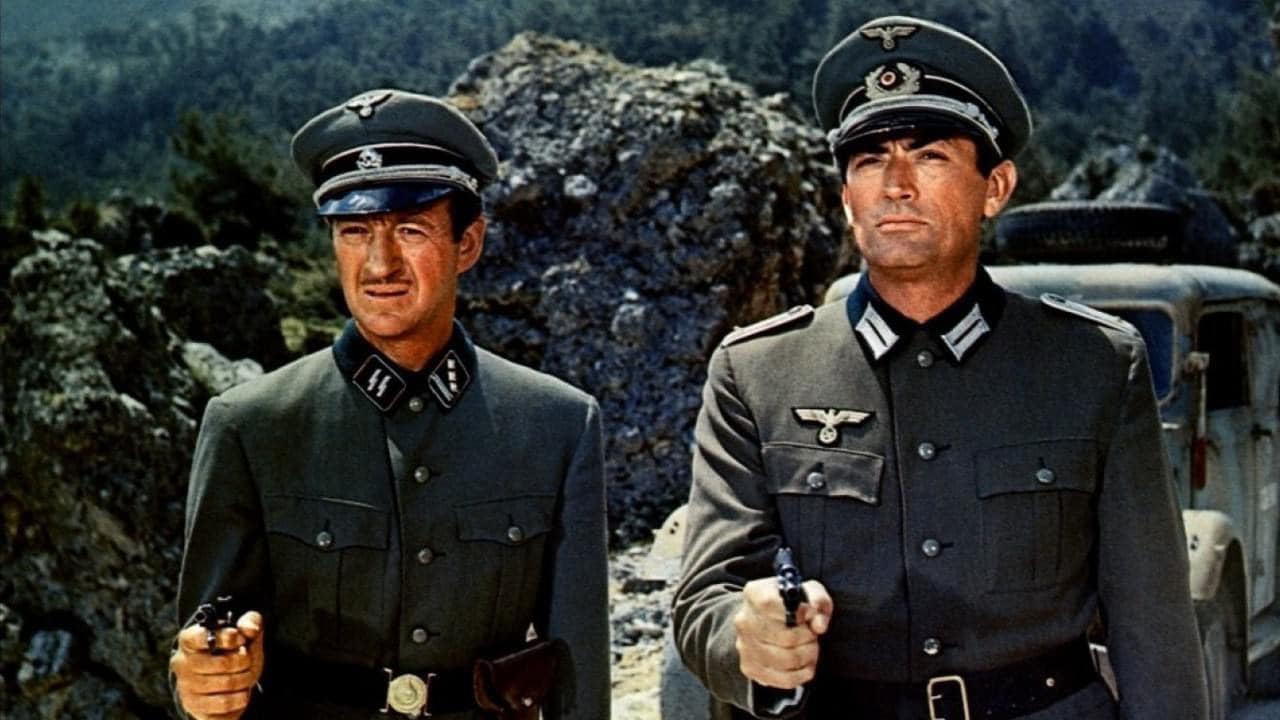
The group also includes Stanley Baker as Engineer Sergeant “Butcher” Brown, Anthony Quayle as Major Roy Franklin, and James Darren as Private Spyros Pappadimos, a young Greek resistance fighter.
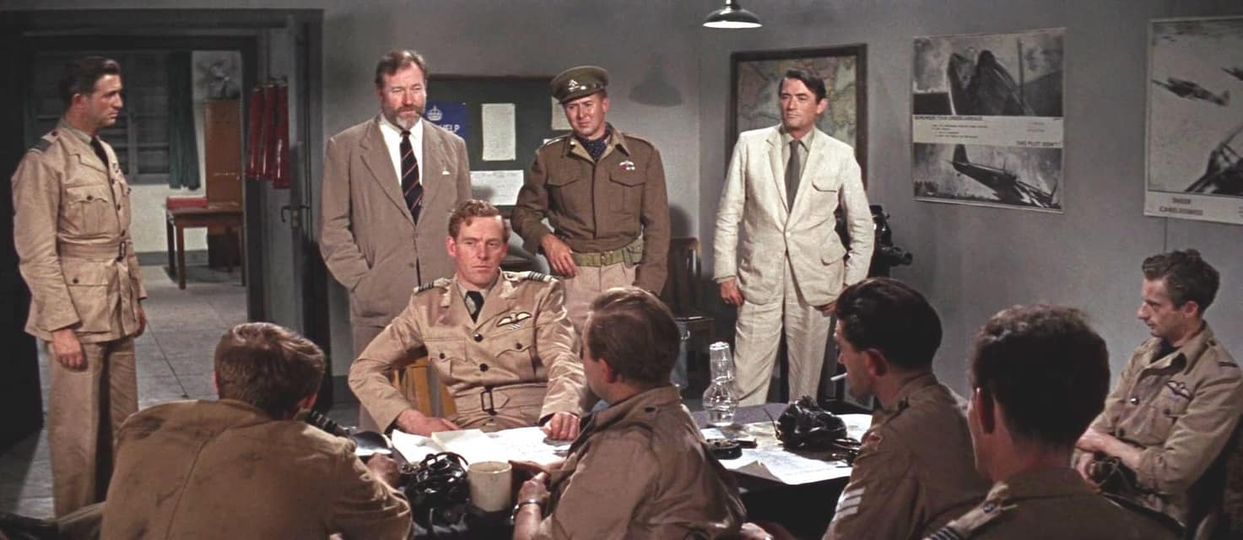
The story begins with the British planning a desperate mission to destroy Navarone’s guns after several failed bombing attempts. Gathered through their specialized skills and expertise, they are tasked with infiltrating the virtual island to try and discover guns before a major naval operation takes place.

“The Wheel of Time” (2021)
“The Wheel of Time” (2021)
“The Wheel of Time” (2021) is a high-fantasy television series based on Robert Jordan’s best-selling book series of the same name. Developed by Rafe Judkins for Amazon Prime Video, the show brings Jordan’s sprawling and intricate world to life with a rich blend of magic, political intrigue, and epic adventure.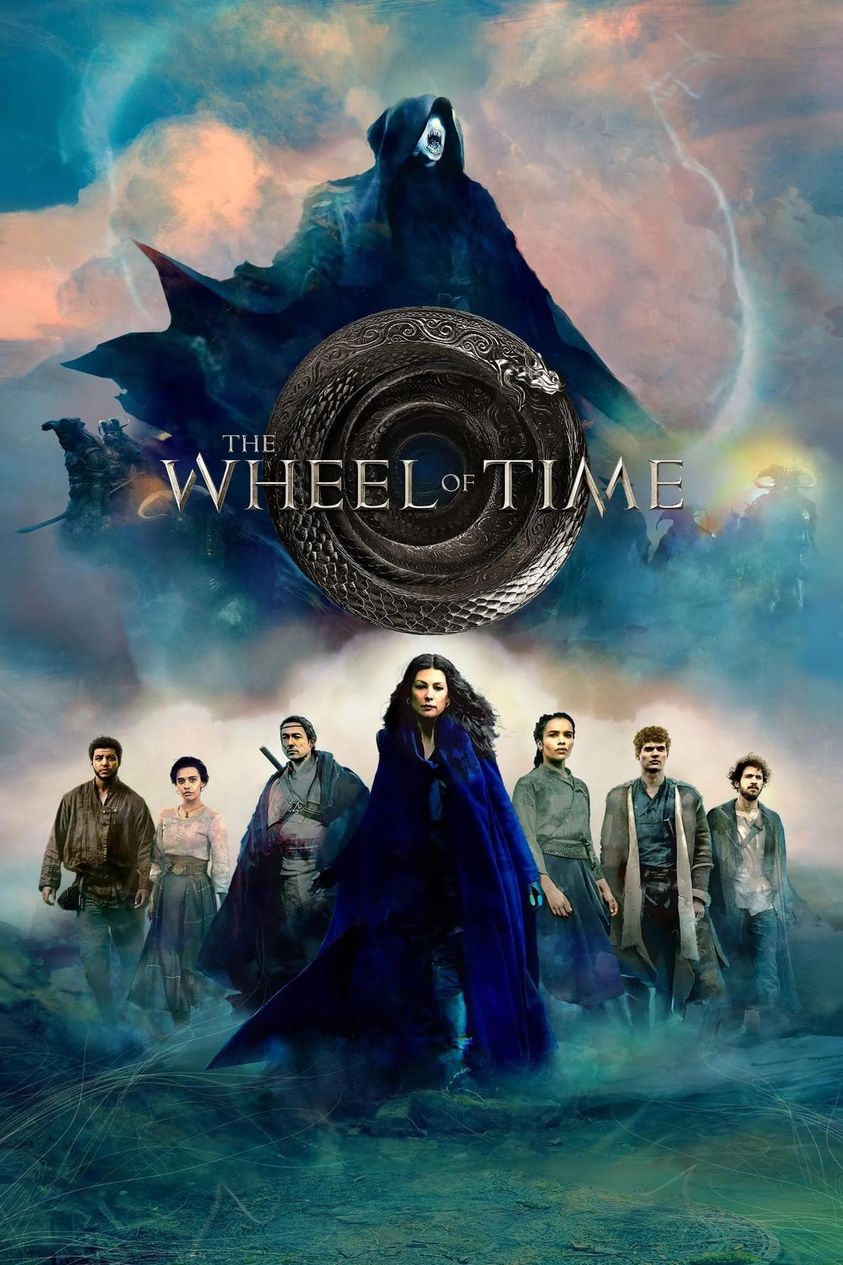
The story is set in a world where only women can safely wield magic, known as the One Power. Men who try to use it are doomed to madness. 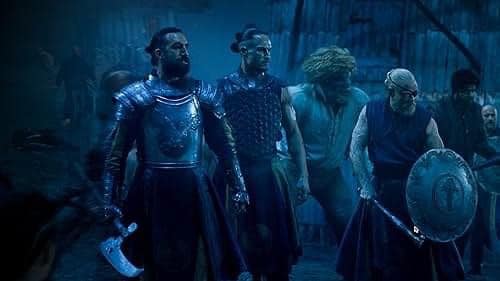 The plot centers on Moiraine Damodred (played by Rosamund Pike), a member of the powerful all-female organization called the Aes Sedai, who embarks on a journey to find the Dragon Reborn—a prophesied figure who is destined to either save the world from destruction or destroy it.
The plot centers on Moiraine Damodred (played by Rosamund Pike), a member of the powerful all-female organization called the Aes Sedai, who embarks on a journey to find the Dragon Reborn—a prophesied figure who is destined to either save the world from destruction or destroy it.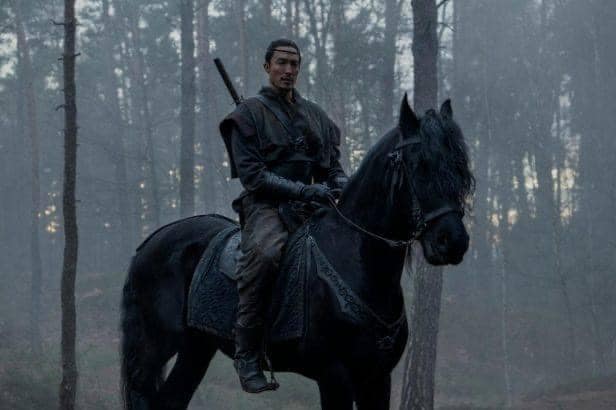
Moiraine arrives in the small village of Two Rivers, where she believes one of five young villagers—Rand al’Thor, Egwene al’Vere, Perrin Aybara, Mat Cauthon, and Nynaeve al’Meara—might be the Dragon Reborn. She takes them on a dangerous journey across a world full of dark forces, ancient prophecies, and magical dangers, all while being pursued by the shadowy agents of the Dark One.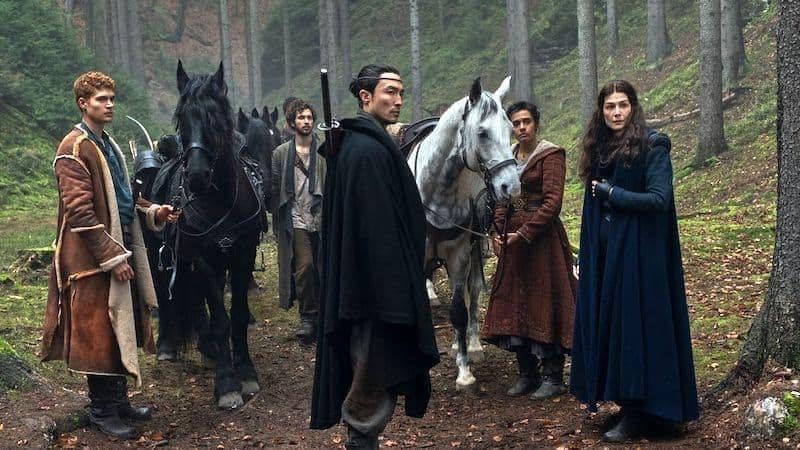
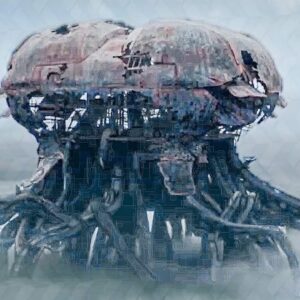
“Vesper” (2022)
“Vesper” (2022)
“Vesper” (2022) is a science fiction drama directed by Kristina Buozyte and Bruno Samper, set in a dystopian future where Earth has been devastated by ecological collapse. The film explores themes of survival, family, and the impact of environmental degradation through a visually striking narrative.
In a post-apocalyptic world ravaged by ecological disaster, Vesper (played by Raffiella Chapman) is a young girl living with her ailing father, Nico (Richard Brake), in a remote and desolate area. The once-thriving world is now plagued by toxic vegetation and a collapsed ecosystem, and the remnants of humanity struggle to survive.
Vesper possesses a unique talent: she is able to cultivate plants and create new life forms that can survive in the harsh environment. Her skills are crucial for her family’s survival, but her father’s health is deteriorating, and they face constant threats from external forces and the unforgiving landscape.
The story takes a dramatic turn when Vesper encounters Jan (Edmund Dehn), a mysterious man who holds secrets and connections to the remnants of the old world. As Vesper’s relationship with Jan unfolds, she learns more about the fate of humanity and the possibilities for the future.
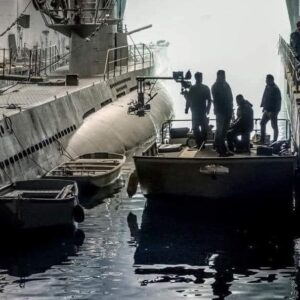
“Das Boot”
“Das Boot,” directed by Wolfgang Petersen, is a gripping war drama that immerses viewers in the harrowing experiences of a German U-boat crew during World War II.

This 1981 classic is renowned for its intense depiction of life aboard the submarine, capturing the claustrophobia, tension, and peril faced by the crew.

With meticulous attention to detail and powerful performances, “Das Boot” stands as one of the most acclaimed war films of all time, offering a raw and unflinching look at the realities of naval warfare.


Uncommon Valor (1983)
Uncommon Valor (1983)
Uncommon Valor (1983) is a war action film directed by Ted Kotcheff, starring Gene Hackman, Patrick Swayze, Fred Ward, and Robert Stack. The film revolves around a retired Marine colonel (played by Hackman) who gathers a group of Vietnam veterans to rescue his son, who has been missing in action since the Vietnam War. 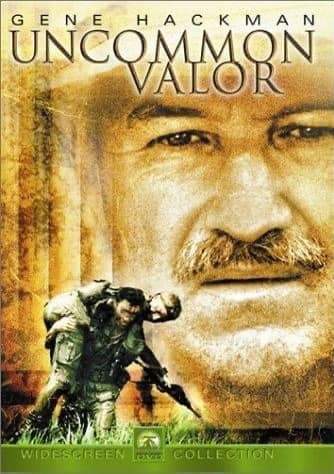 Believing his son is still alive in a Laotian POW camp, Hackman’s character leads the team on a covert mission into Southeast Asia to bring him home.
Believing his son is still alive in a Laotian POW camp, Hackman’s character leads the team on a covert mission into Southeast Asia to bring him home.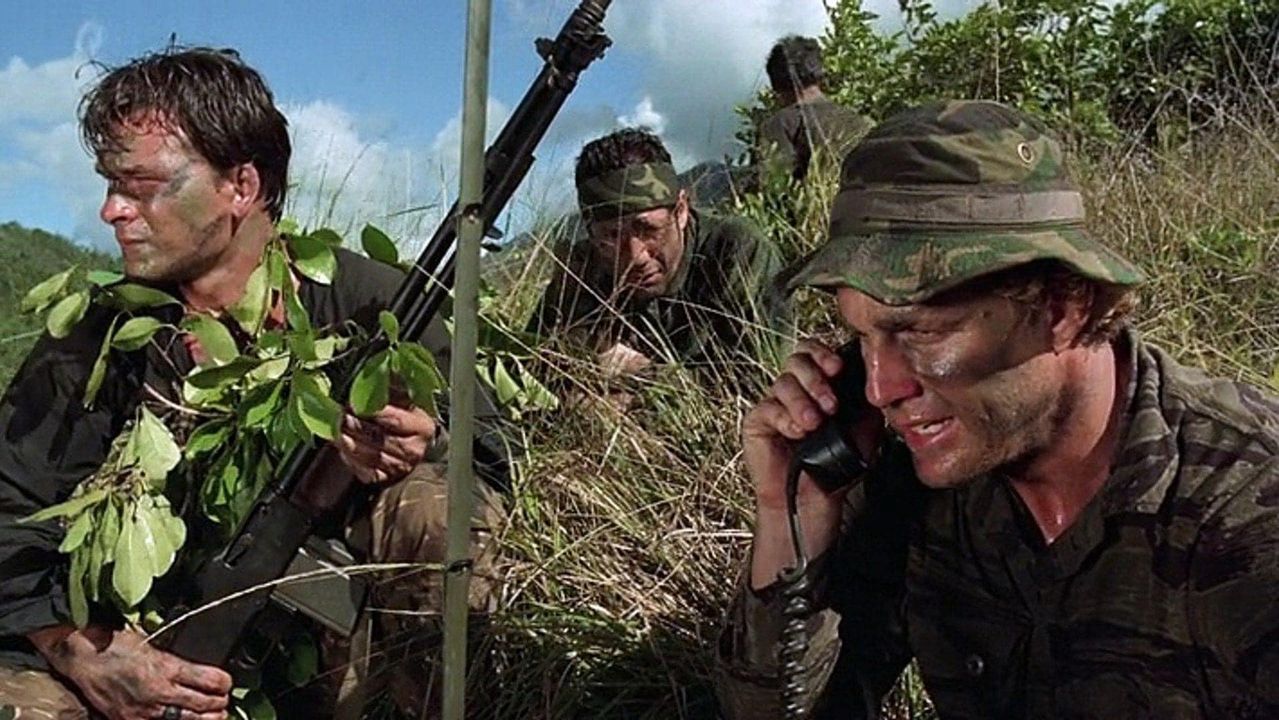
The film stands out for its gritty depiction of the camaraderie among soldiers and the emotional toll of the Vietnam War on veterans and their families.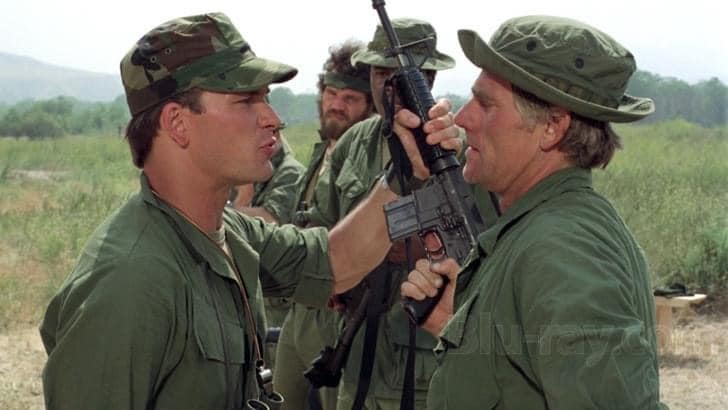 While primarily an action movie, Uncommon Valor also explores themes of loyalty, sacrifice, and the haunting effects of war. It was one of several films from the 1980s that dealt with the lingering impact of Vietnam on American soldiers.
While primarily an action movie, Uncommon Valor also explores themes of loyalty, sacrifice, and the haunting effects of war. It was one of several films from the 1980s that dealt with the lingering impact of Vietnam on American soldiers.
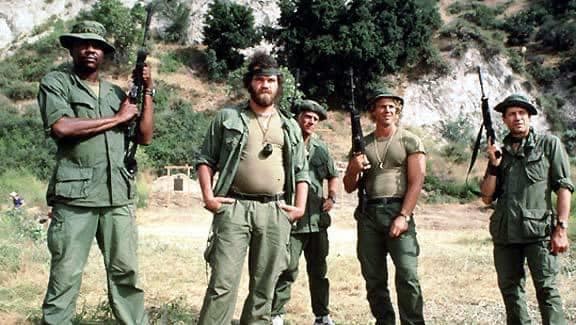

The Convert (2023)
The Convert (2023)
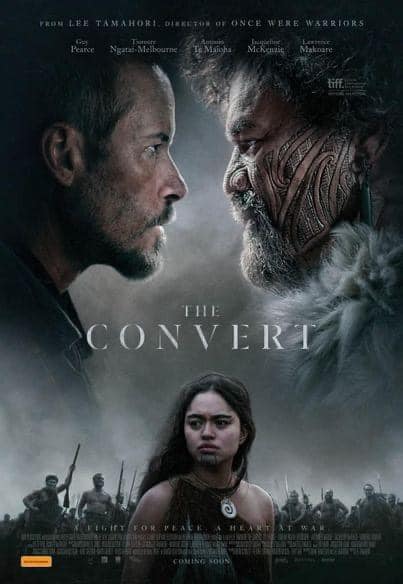
“The Convert,” directed by Lee Tamahori and starring Guy Pearce and Te Kohe Tuhaka, is a 2023 film.

The screenplay, co-written by Shane Danielsen and Tamahori, is based on a story by Michael Bennett and produced by Jump Film & Television and Brouhaha Entertainment.
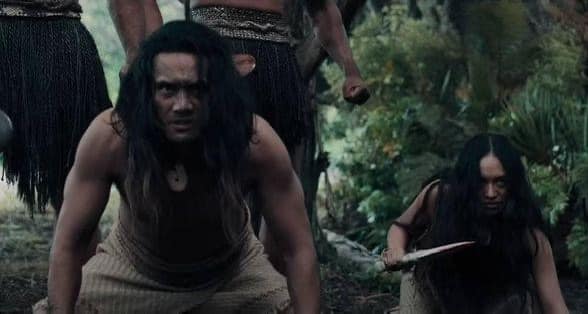
The movie portrays Thomas Munro, a lay preacher stationed at a British settlement in New Zealand named Epworth, who becomes entangled in a violent conflict between Māori tribes during the 1830s
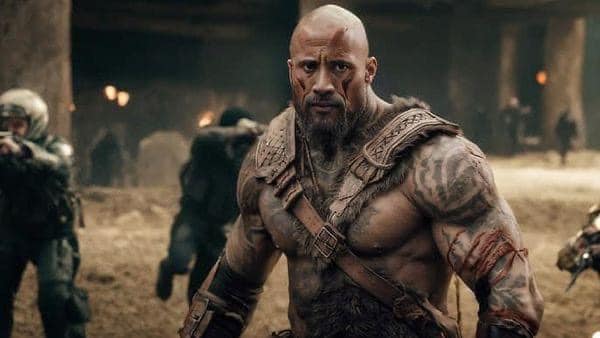
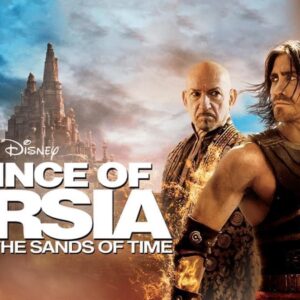
Prince of Persia: Sands of Time (2010)
Prince of Persia: Sands of Time (2010)
“Prince of Persia: The Sands of Time” (2010) is a fantasy action-adventure film directed by Mike Newell and produced by Jerry Bruckheimer. The film stars Jake Gyllenhaal, Gemma Arterton, Ben Kingsley and Alfred Molina.
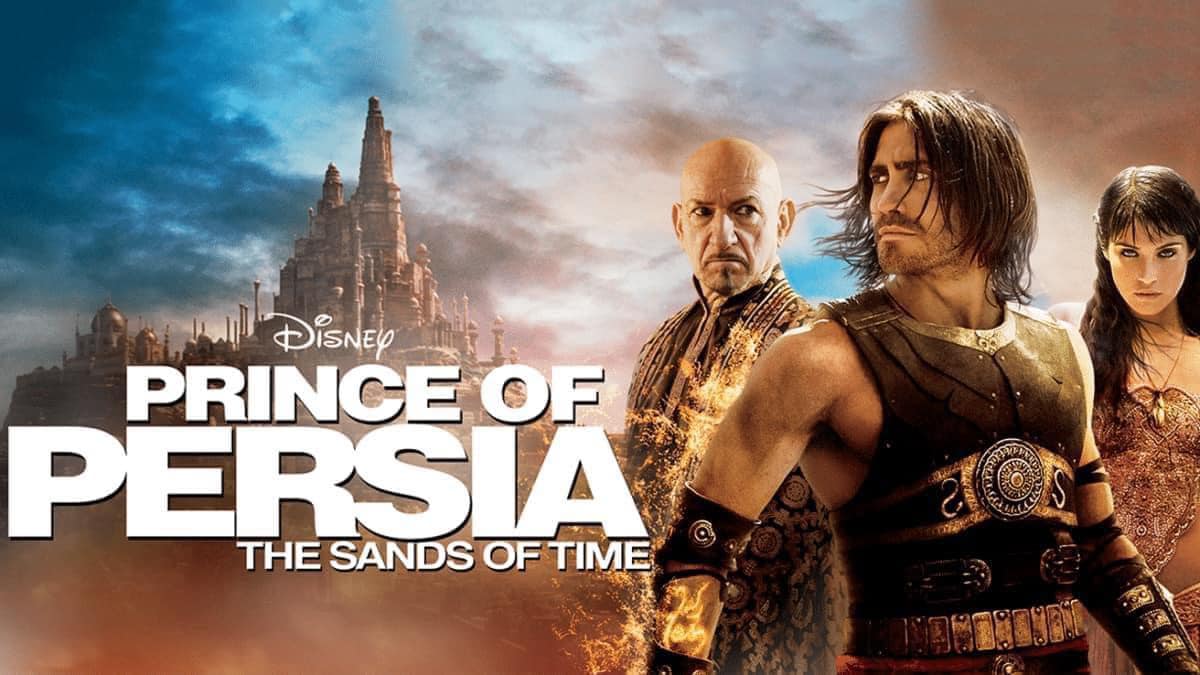
The story is set in ancient Persia and follows Dastan (Jake Gyllenhaal), a young and ambitious prince who discovers a magical dagger that grants him the power to free time. The dagger, known as the Sands of Time, allows its wielder to rewind and fast-forward time, providing benefits in battles and quests.
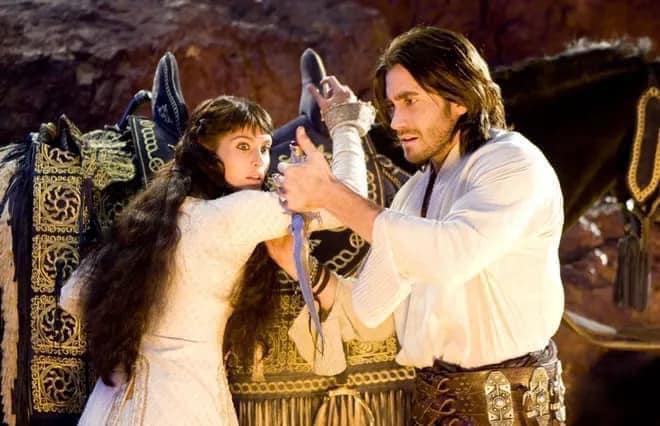
When Dastan is accused of murdering his father, the king, he must flee the palace and embark on a quest to clear his name and stop a nefarious plot to use the Sands of Time to conquer the world.
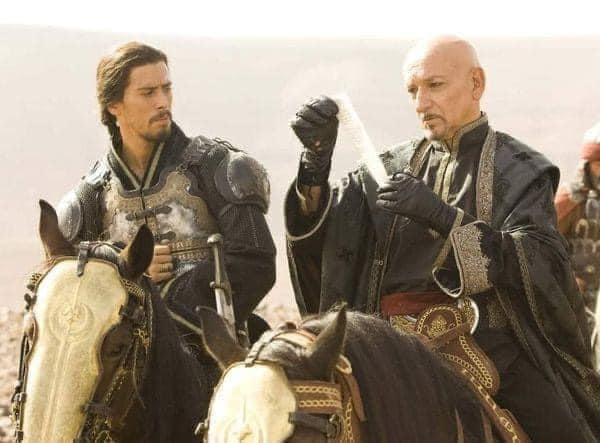
Along the way, he teams up with Princess Tamina (Gemma Arterton), guardian of the Sands of Time, and together they must defeat dangerous enemy rogues and unravel the secret hidden behind the dagger.
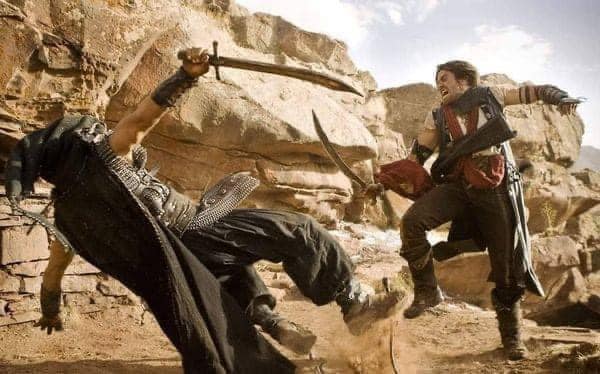

“Kingdom of Heaven” (2005)
“Kingdom of Heaven” (2005), directed by Ridley Scott, transports viewers to the medieval era during the Crusades, offering a sprawling epic that balances grand-scale battles with intimate human drama.
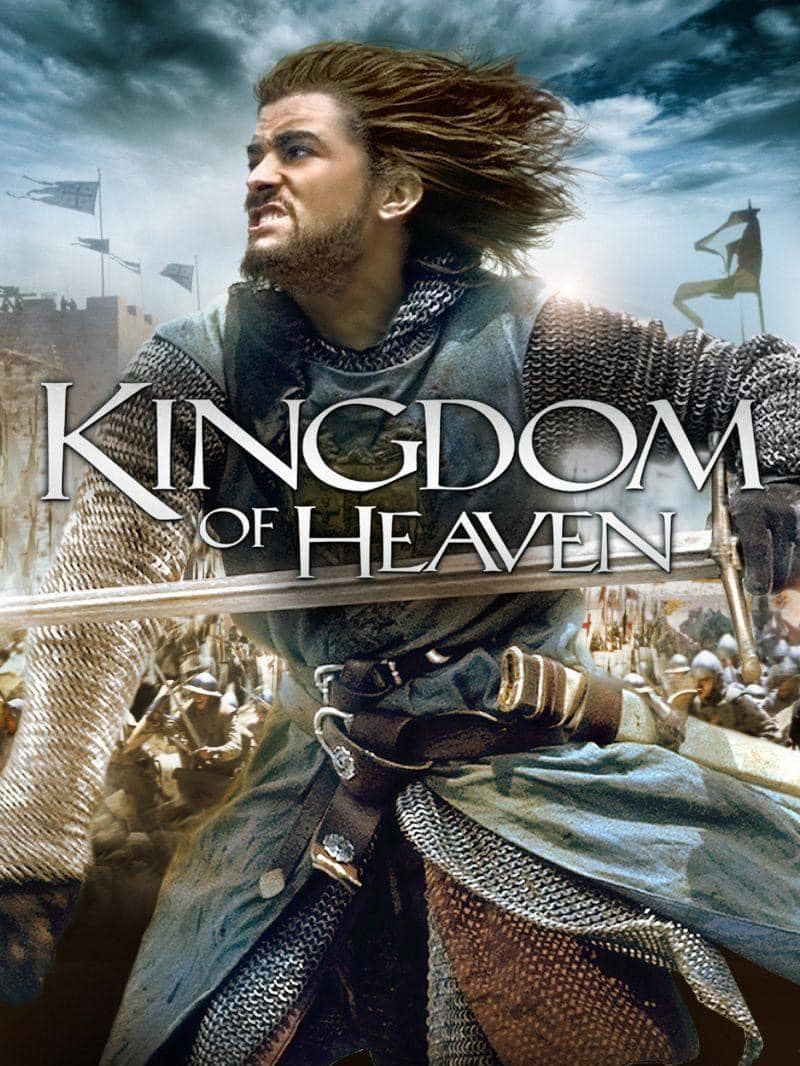
Set in the 12th century, the film follows Balian of Ibelin (played by Orlando Bloom), a blacksmith who rises to become a knight and defender of Jerusalem.
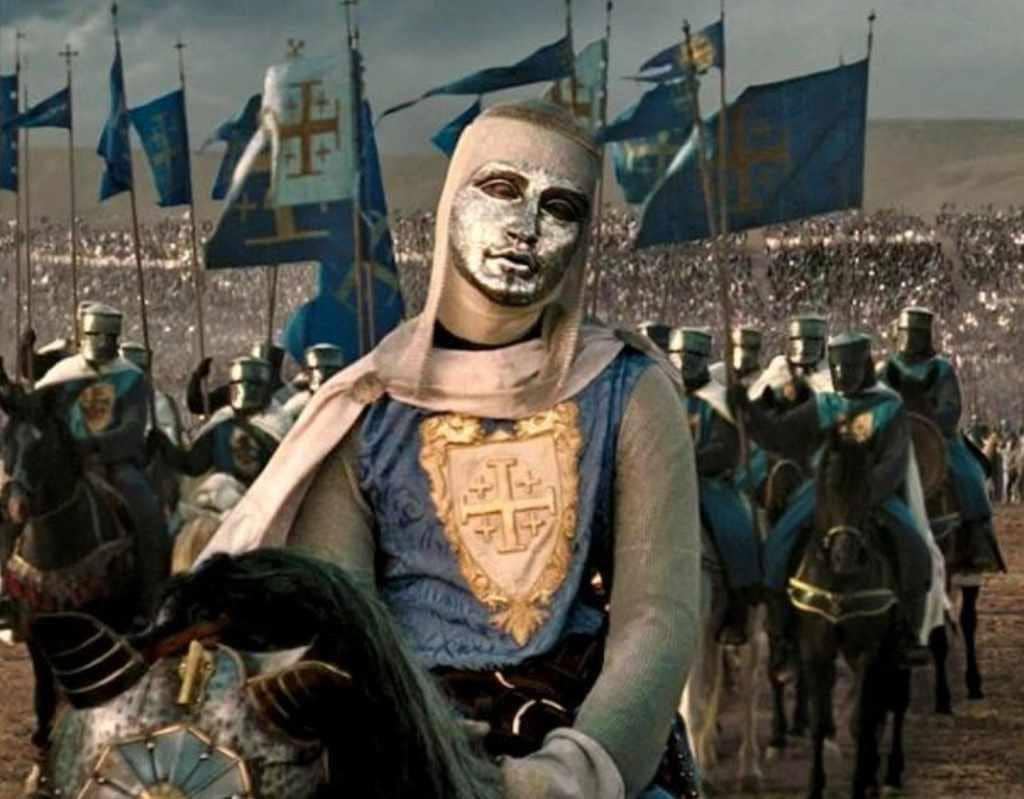
Scott’s direction brings a visually stunning depiction of medieval landscapes and warfare, while the screenplay delves into themes of religious conflict, honor, and the complexities of leadership.
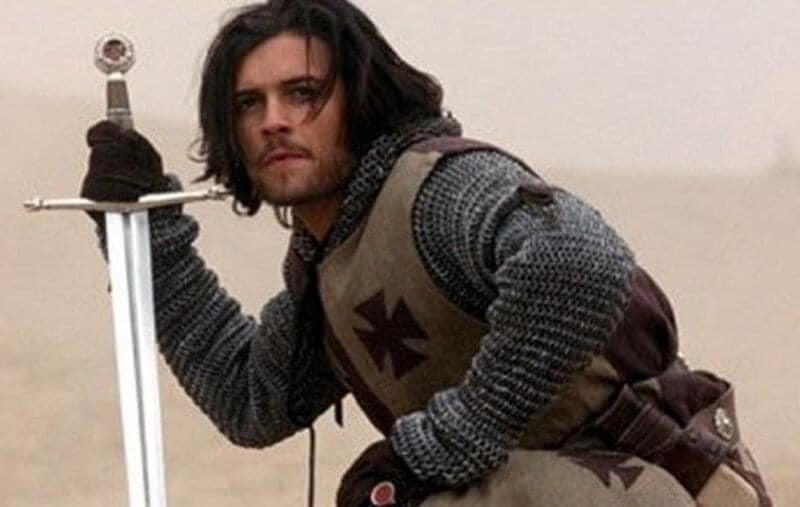
The ensemble cast, including Eva Green, Jeremy Irons, and Liam Neeson, delivers strong performances that add depth to the narrative. Despite some historical liberties, “Kingdom of Heaven” is praised for its cinematography, ambitious scope, and exploration of moral ambiguity in a time of religious fervor and political intrigue.
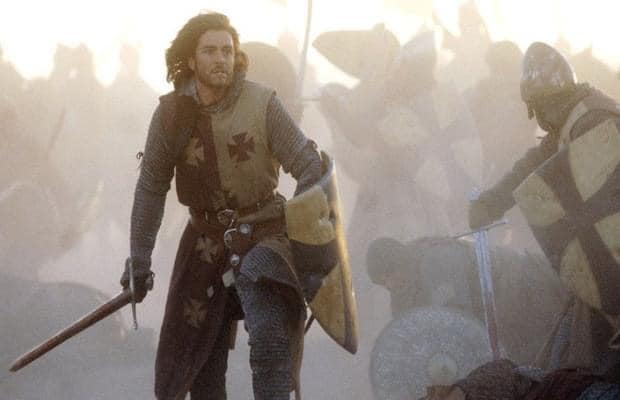
Tiberias (Jeremy Irons) considers his next move to preserve a fragile peace.
